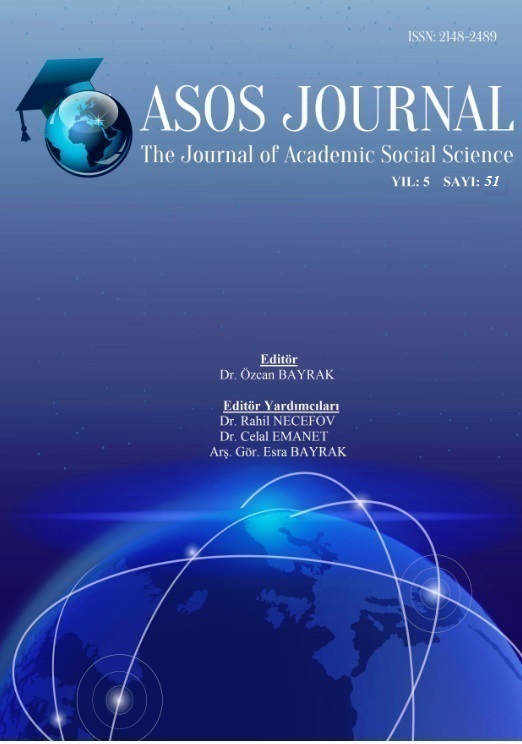Author :
Abstract
Bu çalışmanın amacı, hastanelerde çalışan yöneticilerin hastane itibar yönetiminde kalite ve inovasyon algılarını belirlemek ve bunlar üzerine sosyo-demografik ve hastane özelliklerinin etkisini değerlendirmektir. Kesitsel ve tanımlayıcı nitelikteki bu çalışma, Türkiye’nin Marmara Bölgesinde bulunan 14 hastanenin yöneticileri üzerinde yapıldı. Yöneticilere çalışmanın amacı açıklandı. Çalışmaya katılmayı kabul eden yöneticilere anket uygulandı. Geçersiz anketler ayrıldıktan sonra eksiksiz yanıtlanan 313 anket değerlendirmeye alındı. Verilerin analizi SPSS paket programıyla yapıldı. Yöneticilerde itibar yönetimi faktörlerinden; kalite yönetimi çok yüksek, kurumsal itibar, inovasyon ve genel itibar yönetimi puanı yüksek bulundu. İtibar yönetimi faktörleri ile medeni durum, statü, yaş, eğitim, mesleki deneyim, hastane mülkiyeti, çalışan sayısı, hastane yaşı arasında anlamlı fark belirlendi. Kamu hastaneleri yöneticilerinin özel hastanelerin yöneticilerinden, bekarların evlilerden, üst ve orta yöneticilerin alt yöneticilerden, çalışan sayısı 200-400 olan hastane yöneticilerinin diğerlerinden itibar yönetimi puanının daha yüksek olduğu belirlendi. Yöneticilerin hastane itibar yönetiminde kalite ve inovasyon algıları sosyo-demografik ve hastane özelliklerinden etkilenmektedir.
Keywords
Abstract
Purpose of this study is to determine hospital managers’ perception levels of quality and innovation in the reputation management of hospital and to evaluate the effect of sociodemographic and hospital characteristics on these perceptions. This descriptive and cross-sectional study was conducted with 14 managers of hospitals that are located in the Marmara region of Turkey. The managers were informed about the purpose of the study. Questionnaires were administered to managers who accepted to participate in the study. After excluding invalid questionnaires, 313 questionnaires were evaluated. Data analysis was performed using the SPSS software. Among the reputation management factors, quality management score was very high, organizational reputation, innovation and general reputation management scores were high. Reputation management factors showed significant differences according to marital status, status, age, education, vocational experience, hospital property, number of employees, and hospital age. It was found that public hospital managers, single managers, and lower - middle managers had higher levels of reputation management than private hospital managers, married managers, and quality managers; while managers of hospitals with 200-400 employees had higher levels of reputation management than others. Managers’ perceptions of quality and innovation in the reputation management of hospitals are affected by sociodemographic and hospital characteristics.





